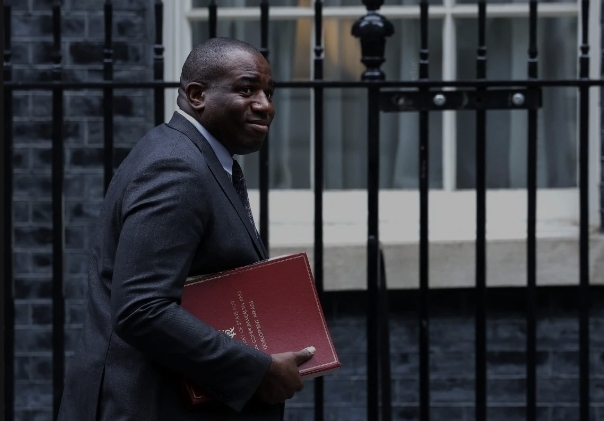
British Foreign Secretary David Lammy has ruled out the “transfer of cash” to other countries in a row over slavery reparations, arguing it would not be appropriate during a cost of living crisis.
Lammy, who has previously urged the UK to consider Caribbean demands for compensation, said the focus on money was overly “simplistic” and not the debate that “people are wanting to have”.
Downing Street has refused to pay reparations for the slave trade, in line with the approach taken by previous Tory administrations.
Ahead of a major Commonwealth summit last month, the Prime Minister Keir Starmer was said to be considering non-cash options such as debt relief.
In his first visit to Africa as Foreign Secretary, Lammy branded the focus on money a “simplistic press debate”.
“It’s not about the transfer of cash, particularly at a time of a cost-of-living crisis around much of the globe, and certainly in the UK,” he told the BBC. “That is not the debate I think that people are wanting to have. They’re wanting to think about the future.”
It comes after Caribbean leaders defied Sir Keir by pushing for a plan to consider reparations at the Commonwealth summit in Samoa. The Prime Minister had said the issue should not be on the agenda.
Speaking in Nigeria, where he was due to sign a “strategic partnership” covering economic ties, national security and climate change, Lammy said the UK was pursuing “a fresh approach” that “works productively from Morocco to Madagascar”.
“Our new approach will deliver respectful partnerships that listen rather than tell, deliver long-term growth rather than short-term solutions and build a freer, safer, more prosperous continent,” he said. “I want to hear what our African partners need and foster relationships so that the UK and our friends and partners in Africa can grow together.”
Lammy is set to meet South Africa’s Foreign Minister Ronald Lamola, and agree on the development of a new growth plan.
The UK official said: “Growth is the core mission of this Government and will underpin our relationships in Nigeria, South Africa and beyond.
“This will mean more jobs, more prosperity and more opportunities for Brits and Africans alike.”
What David Lammy has said before on reparations
Before he entered government, Mr Lammy repeatedly called for the UK to open a dialogue on reparations.
Last month, one Caribbean leader said he should have a free hand on the issue of British compensation, estimated to be worth anything from £206 billion to £19 trillion.
Speaking in a Commons debate on June 14 2018, Mr Lammy, the son of Guyanese parents who is the Labour MP for Tottenham, said: “The Caribbean nations have been united in wanting to put the issue of reparations back on the table. It is important that this country hears and listens to those calls for support, particularly against a backdrop of the Government making it clear that they wish to enter into trade negotiations with those countries once again.”
It followed a May 2018 tweet in which he declared: “In 1833 Parliament passed the Slavery Abolition Act. £17bn of compensation to slave owners for the loss of their property – my ancestors. The slaves received no reparations. Some people simply do not know their history or do not want to know hard truths.”
His calls continued on the frontbench. As shadow justice secretary under Sir Keir Starmer, he told the Boston radio station WBUR-FM in 2020: “The starting point is truth and reconciliation… we’re no longer in a society where we question notions like white privilege.
“And then we get to a point where we have to discuss power and reckoning and repairing – and that to some extent is obviously financial, and involves endowments”
But in Nigeria this month, Mr Lammy doubled down on the Government’s refusal to make a financial offer, saying: “It’s not about the transfer of cash, particularly at a time of a cost-of-living crisis around much of the globe, and certainly in the UK. That is not the debate I think that people are wanting to have”
HISTORICAL WRONGS
From the 15th to the 19th century, at least 12.5 million Africans were kidnapped, forcibly transported by European merchants and sold into slavery. Britain transported an estimated 3.2 million people, the most active European country after Portugal, which enslaved nearly 6 million.
The highly divisive issue of reparations to address historical wrongs is long-standing but has been gaining momentum, with several institutions and some nations acknowledging their past.
The Caribbean Community has a 10-point reparation plan, which among other demands calls for debt cancellation, and the African Union is developing a common position on the issue, with Ghana leading the efforts.
Earlier this year, United Nations chief Antonio Guterres called for reparations to “help overcome generations of exclusion and discrimination”.
(The Telegraph contributed to this report)
